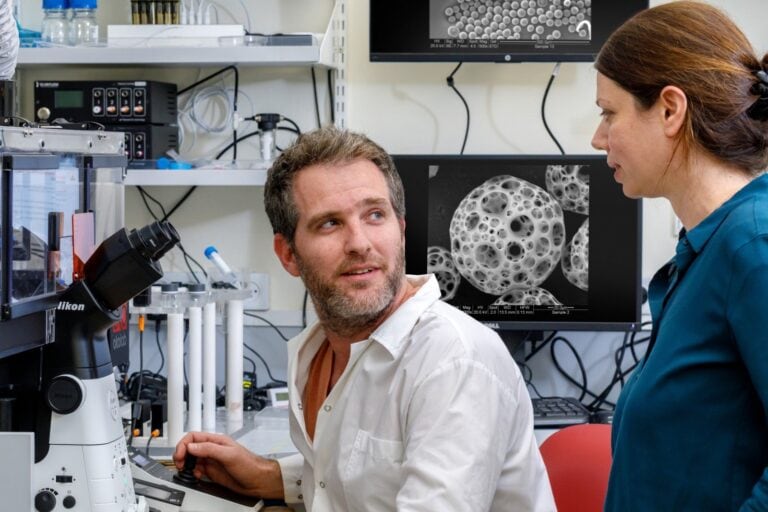Until now it’s been hard for physicians to forecast exactly what a cancer cell will do over time, but a research team at Hebrew University of Jerusalem has recently shared the details of a breakthrough that allows them to precisely predict cancer cell behavior like never before.
They say it could transform cancer diagnosis and treatment, and enhance personalized medicine, enabling treatment tailored to the needs of an individual patient.
Their research centers on how individual cancer cells respond when exposed to tiny particles of various sizes. They measured exactly how many particles were consumed by each cell.
They then used machine learning algorithms to analyze these uptake patterns and predict how each individual cell would respond to any given drug and how likely they were to spread to other parts of the body.
“Our method is novel in its ability to distinguish between cancer cells that appear identical but behave differently at a biological level,” said Yoel Goldstein, a doctoral student at the university’s School of Pharmacy.
“Being capable of collecting and analyzing new types of data brings up new possibilities for the field, with the potential to revolutionize clinical treatment and diagnosis through the development of new tools.”

Current tools for predicting and detecting cancer are often inaccurate and inefficient.
Traditional methods for predicting and detecting cancer like imaging scans and tissue biopsies can be invasive, costly and time-consuming, leading to delays in treatment and potential misdiagnoses.
The new method uses nanoinformatics — the study of nature’s tiniest building blocks — together with AI to create a more effective and non-invasive diagnostic tool.
“This discovery allows us to potentially use cells from patient biopsies to quickly predict disease progression or chemotherapy resistance,” said Prof. Ofra Benny, who jointly led the study.
“It could also lead to the development of innovative blood tests that assess the efficacy of targeted immunotherapy treatments as an example.”
The new predictive tool would make a huge difference for many patients who currently wait a long time for a diagnosis, don’t receive the best possible treatment and suffer anxiety as a result.
The team’s research paper, “Particle uptake in cancer cells can predict malignancy and drug resistance using machine learning,” is available in the peer-reviewed journal Science Advances.
















